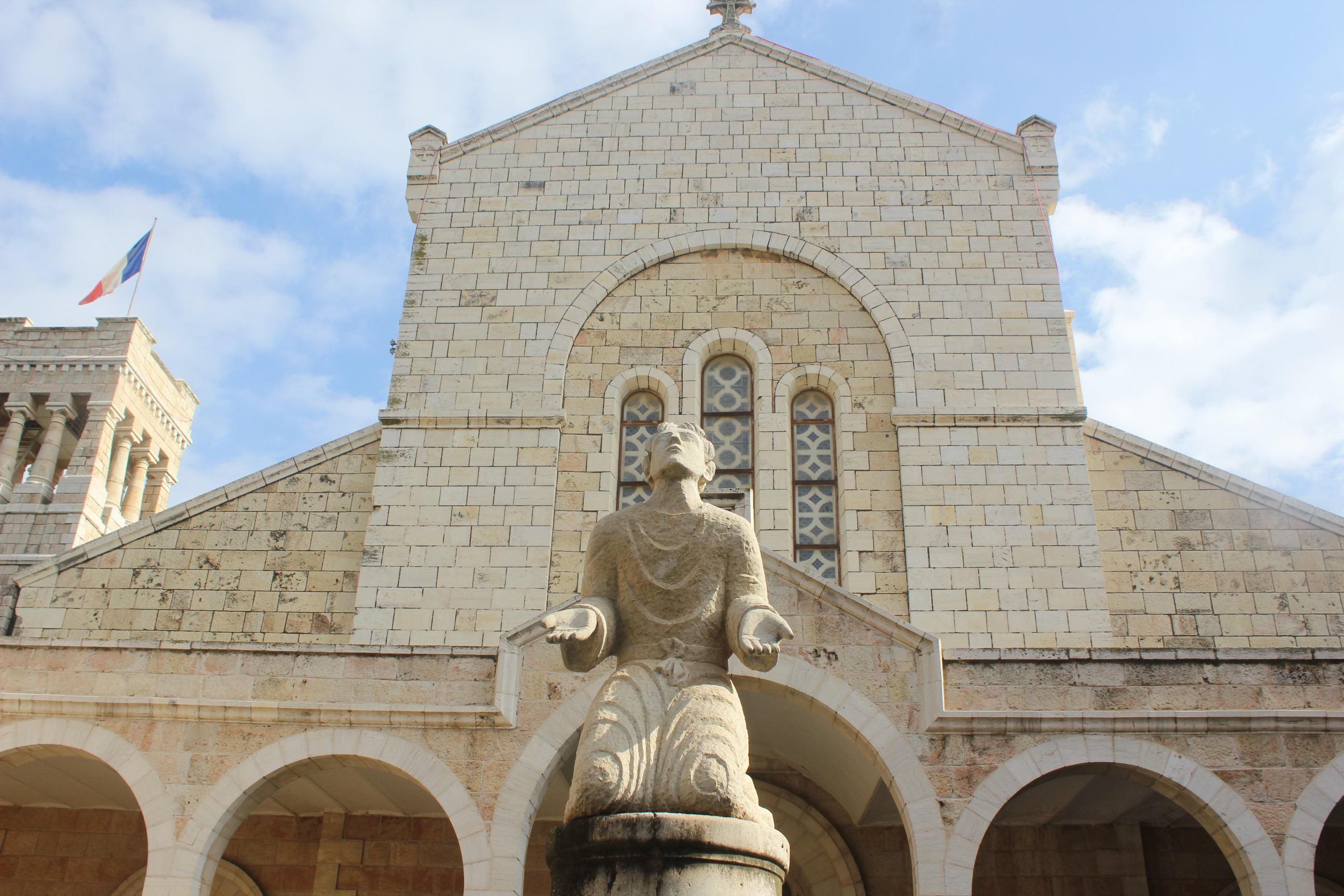
“Stephen, full of grace and power, worked great wonders and signs among the people. Then people from the synagogue of the freedmen, Cyrenians, Alexandrians and others from Cilicia and Asia came. They began to argue with Stephen, but they were not strong enough to stand up to the wisdom and the Spirit that made him speak. So they bribed men to say, ‘We heard him speak blasphemous words against Moses and against God.’ So they roused the people, the elders and the scribes, and then, appearing unexpectedly, they seized him and brought him before the Sanhedrin. There they produced false witnesses who said: ‘This man never ceases to speak against this holy place and against the Law. We have heard him say that Jesus, this Nazorean, will destroy this Place and change the customs handed down to us by Moses.’ Now all who sat in the Sanhedrin had their eyes fixed on him, and his face appeared to them like that of an angel.
The high priest asked, ‘Is it so?’ He replied: ‘Brothers and fathers, listen. The God of glory appeared to our father Abraham, who was still in Mesopotamia before he settled in Haran, and said to him, ‘Leave your country and your relatives and go to the land I will show you. So he left the land of the Chaldeans and settled in Haran. It was from there, after the death of his father, that God led him to this land where you now live. He did not give him any property in this land, not even anything to set foot on, but he promised to give him possession of it and to his descendants after him, even though he had no children. And God said to him that his descendants would sojourn in a strange land, that they would be enslaved and ill-treated for 400 years. But the nation of which they were slaves, I will judge,’ said God. After that, they will go and worship me in this very place. Then he gave him the covenant of circumcision, so that when Abraham became the father of Isaac, he circumcised him on the eighth day. And Isaac did the same for Jacob, and Jacob for the twelve patriarchs. ‘The patriarchs were jealous of Joseph and sold him to be taken to Egypt. But God was with him: he brought him out of all his tribulations and gave him grace and wisdom before Pharaoh, king of Egypt, who made him governor of Egypt and of all his household. (…)
“Ah,’ he said, ’I see the heavens open and the Son of Man standing at the right hand of God. Then they shouted loudly, stopped their ears and, as one man, rushed at him, pushed him out of the city and began to stone him. The witnesses laid their clothes at the feet of a young man called Saul. And while they were stoning him, Stephen made this invocation, ‘Lord Jesus, receive my spirit.’ Then he bowed his knees and said, with a loud cry, ‘Lord, do not impute this sin to them.’ And saying this, he fell asleep’.
Acts 7, 1-60
Between the 3rd and 20th of December 415, Lucien, a priest of the diocese of Jerusalem, stationed in Caphargamala – today Beit Gemal or Jemmala – had three successive apparitions from Gamaliel instructing him to search for the burial place where he was buried, along with his son Abibas, who had died prematurely, Nicodemus, a prominent man like himself who had secretly converted to Christ, and above all Stephen the Protomartyr, whose remains he had piously collected after the stoning.
Lucien resisted a great deal internally, but finally spoke to Bishop John of Jerusalem. The bishop ordered that the place revealed in the dream be searched. After some time, the quadruple tomb was found.
When Stephen’s coffin was opened, a heavenly fragrance was released and seventy-three sick people in the village were cured. Half a century later, on 15 January 460, the powerful empress Eudocie dedicated a new church to the Protomartyr, which she had built on the site of our current basilica, and where she was buried a few months later. The basilica was later ruined when the city was sacked by the Persians. Fifteen centuries passed.
Once the Basilica had been rebuilt, the Dominican friars were keen to revive devotion to Saint Stephen, which had been interrupted since the sacking of the building during the Persian invasion. After a few years, they received worthy relics of the Protomartyr.

